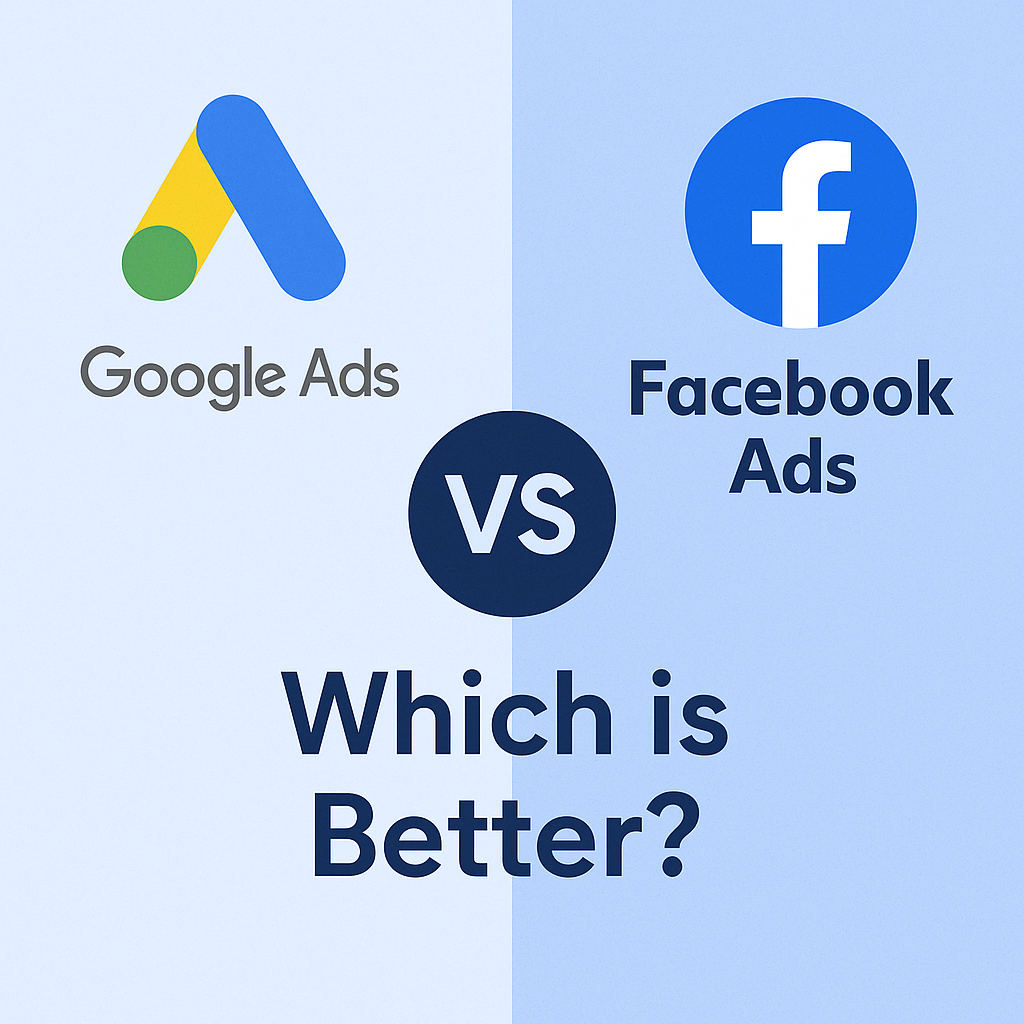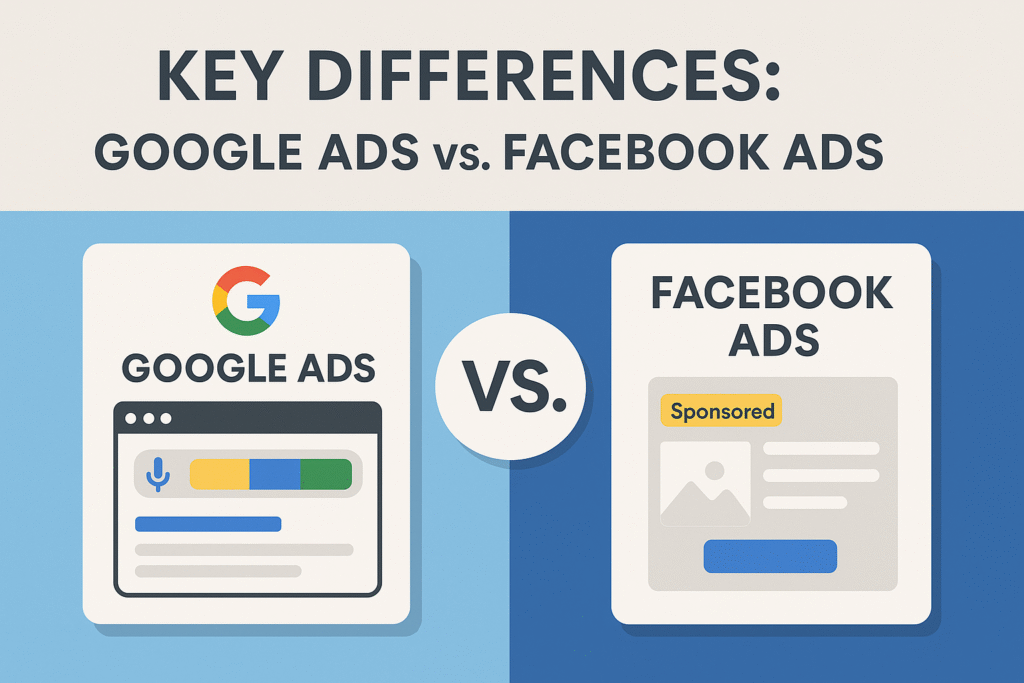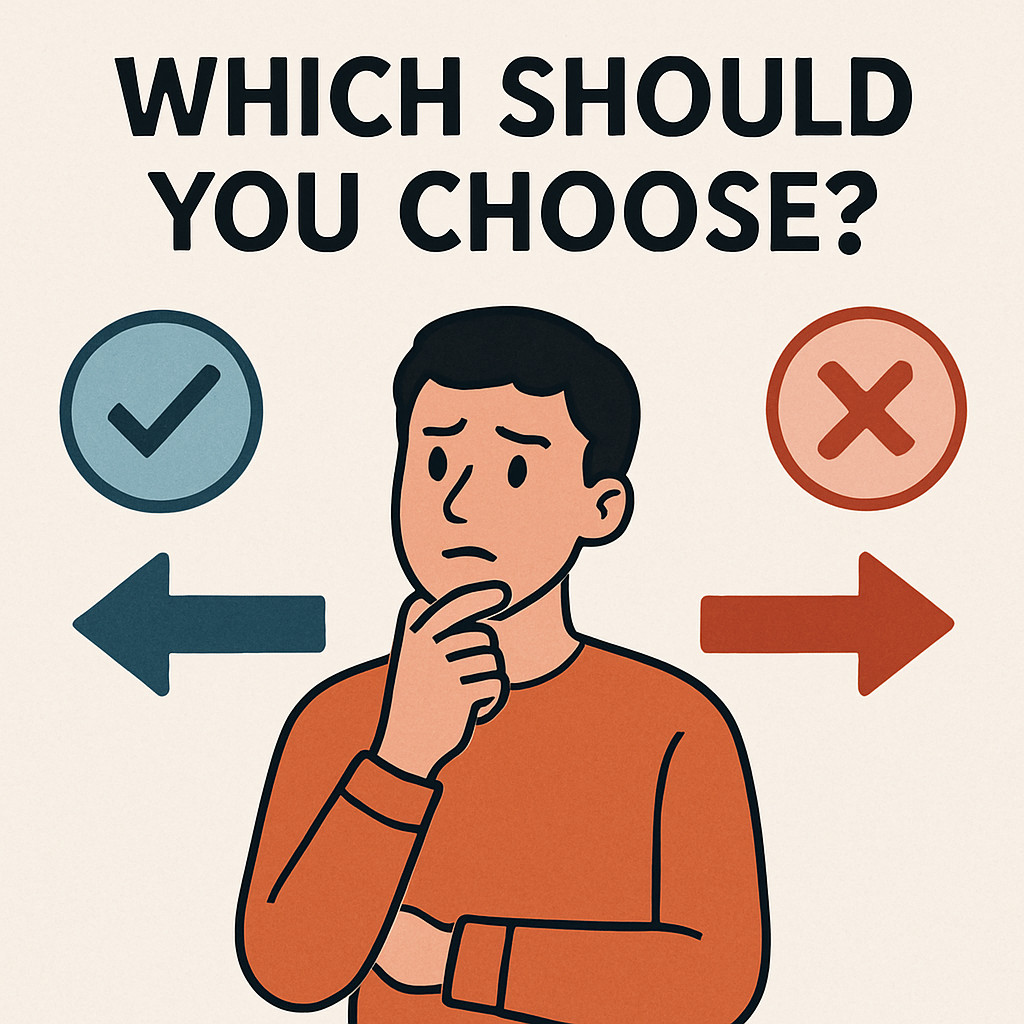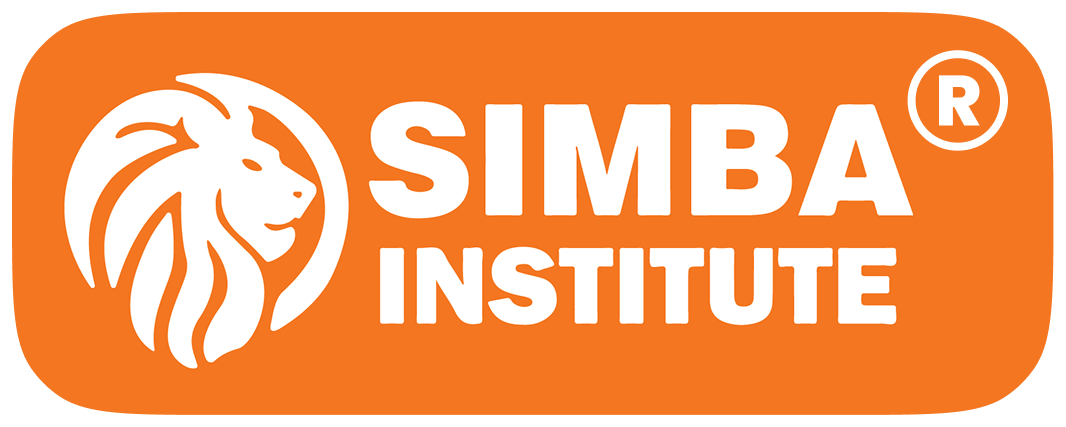Search
People also search for:
Google Ads vs. Facebook Ads: Which is Better?
Google Ads vs. Facebook Ads: Which is Better?
- Home
- Google Ads vs. Facebook Ads: Which is Better?
Google Ads vs. Facebook Ads: Which is Better?

In the world of digital marketing, businesses have countless tools at their disposal to reach new customers and drive sales. Two of the most powerful advertising platforms are Google Ads and Facebook Ads. Both platforms have transformed how brands connect with their audiences — but when budgets are limited and results matter, marketers often ask: Which one is better?
In this guide, we’ll break down everything you need to know about Google Ads vs. Facebook Ads, so you can make an informed decision about which is best suited for your campaigns — whether you’re a beginner, a business owner, or a student enrolled in a digital marketing course.
Understanding the Platforms:
Google Ads — The King of Intent:
Google Ads (previously Google AdWords) is a pay-per-click (PPC) advertising platform where businesses display ads in Google search results, YouTube, Gmail, and across the Google Display Network (a vast collection of partner websites). Its biggest strength is search intent – meaning people are actively looking for something when they see your ad.
For example, if someone searches for “best running shoes”, a Google Search Ad puts your product right in front of them when they’re most likely to buy.
Facebook Ads — The Master of Social Discovery:
Facebook Ads, on the other hand, operates within the Facebook ecosystem — including Instagram, Messenger, and Audience Network. It excels at targeted audience discovery by using extensive user data such as demographics, interests, behaviors, and even life events.
People on Facebook or Instagram may not be actively searching for your product, but they’re highly engaged. With precise targeting, you can introduce your brand to people who didn’t even know they needed you — yet.
Key Differences: Google Ads vs. Facebook Ads:

1. Audience Intent
Google Ads:
Users are actively searching for specific solutions or products. This makes Google Ads effective for capturing demand.
Facebook Ads:
Users are browsing content and social feeds. Ads create demand through discovery and interest-based targeting.
Which is better?
If your business solves an immediate problem (e.g., emergency plumber, legal services), Google Ads wins. If you’re building awareness or introducing new products (e.g., fashion, lifestyle brands), Facebook Ads excels.
2. Targeting Capabilities:
Google Ads:
Keyword targeting, location, device type, language, demographics, remarketing lists. Google also has in-market audiences and affinity groups for more sophisticated targeting.
Facebook Ads:
Hyper-detailed audience targeting based on demographics, interests, behaviors, custom audiences (from your CRM or website visitors), and lookalike audiences — allowing you to find users similar to your best customers.
Which is better?
For interest and behavior-based targeting, Facebook has an edge. But for keyword intent, Google is unmatched.
3. Ad Formats:
Google Ads
- Search Ads (text-based)
- Display Ads (image/banner)
- Shopping Ads (product listings)
- YouTube Ads (video)
- App promotion
Facebook Ads:
- Image Ads
- Video Ads
- Carousel Ads (multiple images)
- Collection Ads (for eCommerce)
- lead Ads (capture leads without leaving Facebook)
- Stories and Reels Ads (full-screen vertical)
Which is better?
If you have visually appealing products, Facebook and Instagram ads shine. If you want to dominate search results or YouTube, Google Ads provides diverse formats.
4.Cost:
Google Ads:
Cost-per-click (CPC) can vary widely depending on industry and keyword competition. For example, legal and finance industries can see CPCs upwards of $10–$50.
Facebook Ads:
Typically has lower CPC and cost-per-thousand impressions (CPM) than Google Ads, especially in B2C (business-to-consumer) markets.
Which is better?
For budget-friendly awareness, Facebook Ads may offer more bang for your buck. But for high-intent conversions, Google Ads can justify higher costs.
5. Analytics and Reporting
Google Ads:
Offers robust analytics through Google Analytics integration, conversion tracking, keyword performance, attribution models, and more.
Facebook Ads:
Strong native analytics with insights into audience behaviors, ad placements, and engagement metrics. The Facebook Pixel tracks conversions and optimizes campaigns.
Which is better?
Both offer in-depth reporting, but Google Analytics + Google Ads together provides deeper cross-channel insights, while Facebook Ads gives clearer social engagement data.
Which Should You Choose? (The Answer Depends!):

Business Goals: Lead generation? eCommerce sales? Brand awareness?
Target Audience: Where do they spend time? Are they actively searching or just browsing?
Budget: Can you afford high CPCs, or do you need efficient impressions?
Creative Assets: Do you have strong visuals or mainly text-based offers?
Sales Funnel Stage: Are you building awareness, nurturing interest, or closing sales?
When to Use Google Ads:
You want to capture immediate search demand
Your product/service solves urgent problems
You’re targeting high purchase intent keywords
You want to advertise on YouTube or Google Shopping
When to Use Facebook Ads:
You want to build awareness and target interest-based audiences
You have engaging visuals (videos, images, carousels)
You want to retarget website visitors or build lookalike audiences
You want lower CPCs for top-of-funnel campaigns
Here’s an example of an integrated strategy:
Top of Funnel (Awareness)
Run Facebook/Instagram ads targeting interest-based audiences with engaging video or carousel ads.
Middle of Funnel (Consideration)
Retarget Facebook users who engaged with your ads or website with product offers or lead magnets.
Bottom of Funnel (Conversion)
Use Google Search Ads to capture users actively searching for your solution and close the sale.
Retention & Upsell
Retarget customers on both platforms for cross-sells and loyalty campaigns.
Digital marketing course:
Simba institute:
- This institute is the best option for your digital marketing career.
- In which your career becomes better.
- Simba Institute also provides online courses.
- Apart from digital marketing, many other courses are also available at Simba Institute.
- My own experience at Simba Institute was ,
- This institute is the best.
- I got training there to take my career further.
- Every question is answered properly.
- The technique of explaining here is also good.
- The practice team is also the best team.
- Internship is also provided.
- They explain in the best way with practical.


